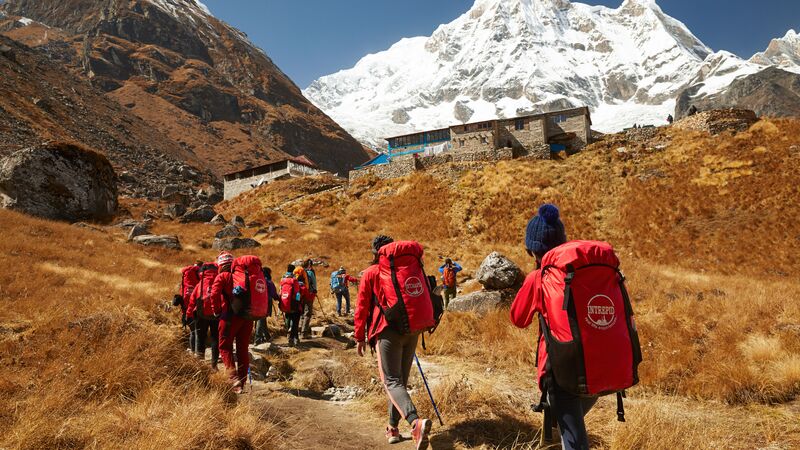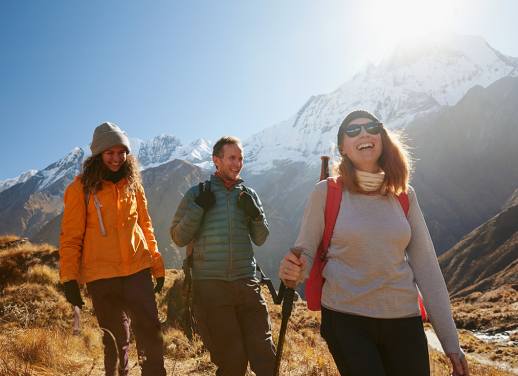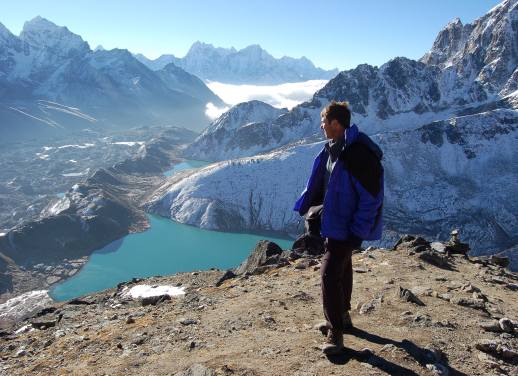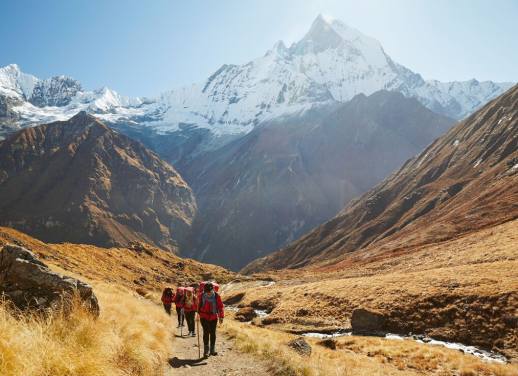The first thing you think about is the soaring snow-capped mountain peaks, like Everest, Annapurna I and Lhotse. Then you consider those landscapes of rhododendron forests, bamboo thickets, thundering white-water rapids, and grassy tundras.
And then you probably think about all those hiking trails, with easy circuits to suit casual strollers and challenging week-long scrambles for hard-core adventurers. It’s really no surprise that tourism is the largest industry in Nepal, the small landlocked country nestled between India and Tibet.
Of the more than one million international travellers visiting Nepal each year, around 80,000 of them are drawn to Nepal’s mountain ranges. That’s a lot of trekkers making their way up, down and around Nepal’s hundreds of trails.
The majority of those trekkers need porters. It’s hard enough for someone who’s not Nepalese to even breathe at altitude, let alone haul backpacks full of clothing, water, medical supplies, sleeping bags and more. Hence the need for someone to help carry the load. But along with carrying gear, porters also take on the role of guide, botanist, first-aid officer, cook and friend.
But as the most important group of people in the trekking industry, porters tend to be treated the worst.
While the standard weight allowance for porters, set by the Nepalese Government, is 35 kgs (77 lbs), it’s not an enforced restriction; most of Nepal’s more reputable trekking companies do restrict client trek loads to around 10 kgs per trekker (around 22 lbs), although the more dubious trekking agents expect porters to carry a lot more.
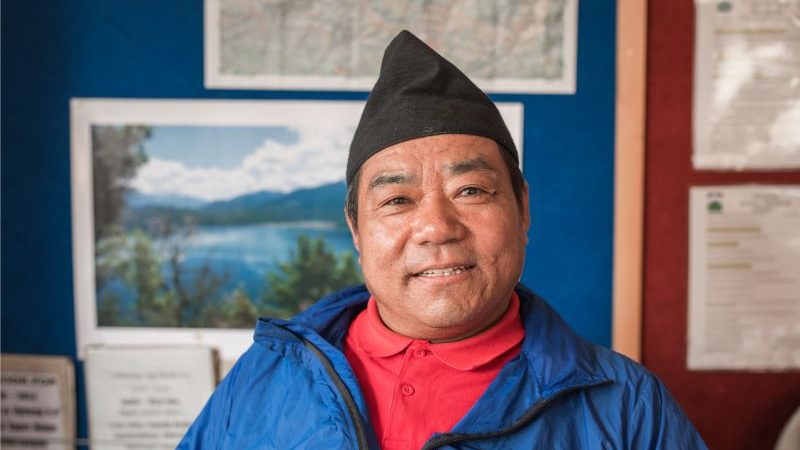
Bhalakaji started working as a porter in 1981.
The most common way to abuse a porter is to get them to carry too much and pay them too little. Intrepid Travel pay their porters and leaders as soon as they finish a trip, however some trekking companies in Nepal might not pay until five or six months after a job. Porters and guides often have to chase money, and they’re bound to those companies until they’re paid. Nepal doesn’t have a welfare system, so people have to do what they can to make money – kicking up a fuss about late payments, heavy bags or long hours will generally be met with directions to the door.
This is a broken part of Nepal’s tourism industry. One that the Kathmandu Environmental Education Project – also known as KEEP – is trying to fix.
“KEEP was established 27 years ago, with the aim of looking after porter welfare,” Ian Wall, KEEP’s CEO explains. “Back then, a porter was ‘just’ a porter. They did it to make money, and they were usually unknowingly taken advantage of. They couldn’t stay in the lodges, so they’d sleep outside, because the lodge owners felt they could make more money letting foreigners use the space that the porters might occupy. They were getting sick. Many of them were dying. KEEP was set up to help the porters look after themselves. We started educating trekking companies that they need their porters to be healthy, and know their welfare rights.”
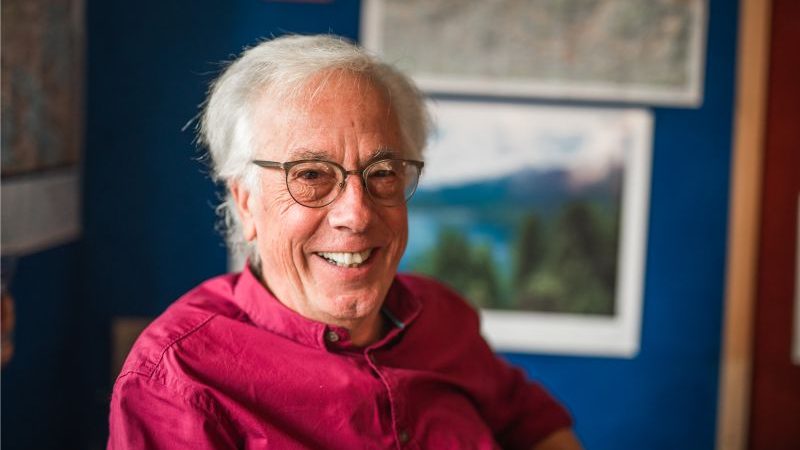
KEEP CEO Ian Wall.
Over the years, KEEP has developed several initiatives for porters and guides. But the one that’s really changing lives is their Porter Welfare Program. The sessions – run during the trekking off season so no one has to worry about missing work and forgoing much-needed income – see porters from across the country coming together in KEEP’s head office in Kathmandu to learn about their rights. These sessions are also run in rural communities outside Kathmandu for porters who can’t afford to come to the city. They receive education on mountain safety, first aid, hygiene, ecotourism, map reading and communication skills.
After porters and guides have completed this training, they can go back to the companies they’re working for and word up other porters and guides; Ian refers to it as a trickle-down approach to knowledge. KEEP call it Train the Trainers.
One of the best things about Train the Trainers? It’s free. Funding comes from donors, including Intrepid Travel’s not-for-profit arm, The Intrepid Foundation. The Intrepid Foundation chose KEEP as one of its many projects to provide trekking professionals with the skills and knowledge to keep them – and their clients – safe, and contribute to the sustainability of their local community. It also helps raise people’s self-esteem and feelings of worth.
FIND OUT MORE ABOUT THE INTREPID FOUNDATION HERE
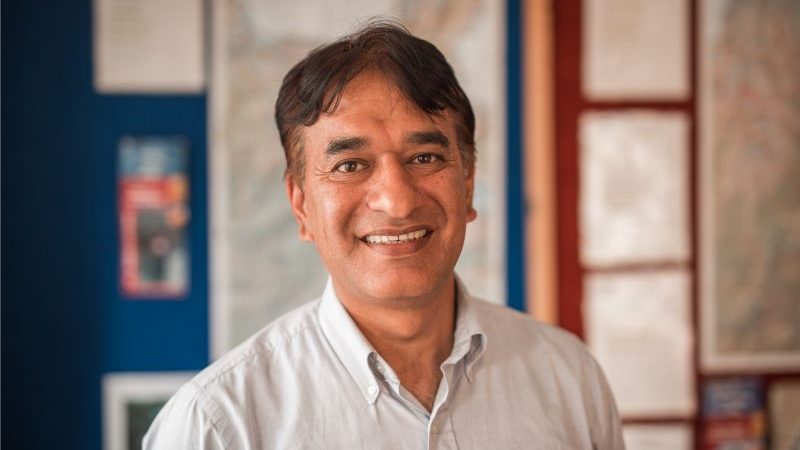
Tara Dattjossi, KEEP‘s manager.
“The funding we receive from The Intrepid Foundation is so important, not only for us at KEEP, but for the tourism industry in Nepal in general. Other companies see what we’re doing and send their porters and guides to us for training,” says Tara Dattjossi, KEEP’s Manager, who has been with the organisation for 19 years.
“Many porters in Nepal don’t have much education or equipment. When they’re out trekking, they often don’t sleep in proper areas, or know how to communicate. Very few of them know how to speak any English. Most of them come from very poor families. We see some porters carrying 100 kgs (200 lbs). Here at KEEP, we teach them not to take anything heavier than 20 kgs (44 lbs), which is 10 kgs (22 lbs) per client.”
The porters on Intrepid’s Nepal trekking trips carry only 10 kgs (22 lbs) per trekker, along with a weight allowance for their personal belongings.
“Our main job is to teach porters what their welfare rights are, so they feel empowered to take responsibility. They are the backbone of the tourism industry here. How can anyone expect to run treks without them?” Tara explains.
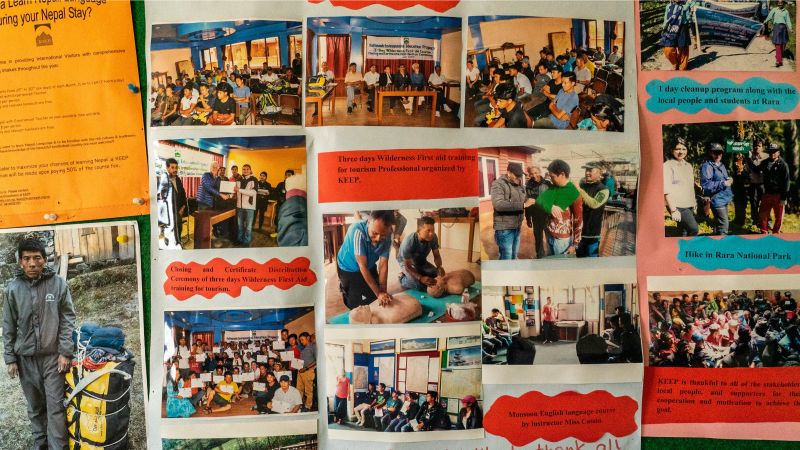
Porters learning first aid, mountain safety and how to read maps.
Dolamgai was a porter for five years, and now works as a trekking guide. He used to carry huge bags in Nepal’s Annapurna and Lantang regions.
“I have done KEEP training sessions six times. I’ve learnt how to read maps, how to talk to clients and how to communicate with travellers. When I first started training, my English was very bad. I found pronunciation very difficult. I was scared to answer questions. I would run away if the teacher asked me anything! But slowly, I got more confidence. I feel very confident now, and my English has improved so much since being here!
“These sessions are so important. If we know how to read maps properly, we can find easy and hard ways up the mountain. With first aid, we know that if people get sick, it’s most likely to be mountain sickness (altitude sickness), and we know how to treat them. We know how to control bleeding if we need, and how to give oxygen to hikers if they’re having trouble breathing.
“After doing this training, I can pass on the skills I have learned to my assistant guides and the porters that I work with.”
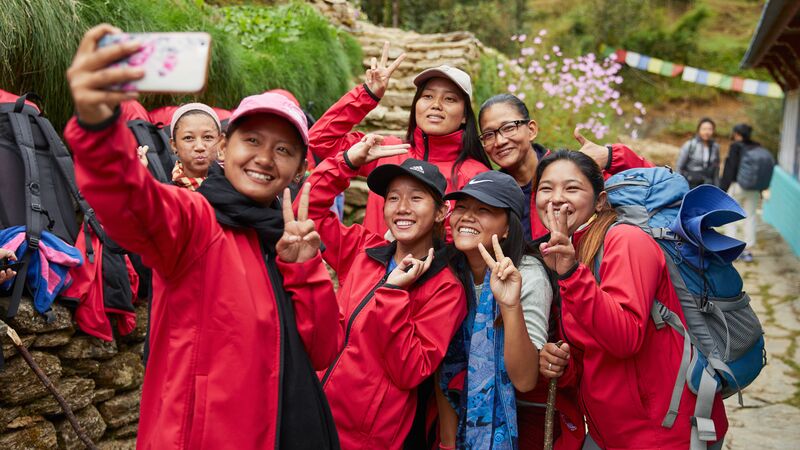
More women are becoming porters in Nepal. Photo by Matt Cherubino.
Around 10,000 porters have come through KEEP since they started operating in 1992, including more and more women. The program sees around five women sign up to the Porter Welfare Program each season. It’s a slow start, but it’s a positive change in a very male-dominated industry.
“KEEP inspires porters to look to their future, and think about becoming a guide,” Tara says. “The knowledge is transferable and gives opportunities. I want all our porters to have a good education, and to improve equality. I want to make the tourism industry in Nepal as good as it is in Europe, the US or Canada.
“I see really positive changes in the porters who come out of the programs here. They have a really good knowledge of tourism by the end. We’re helping them protect their jobs, and their bodies. By the time they finish the program, they know about health and safety, and they know what their rights are.”
To find out more about KEEP and how donations from The Intrepid Foundation are helping them educate porters and guides in Nepal, click here.
Feature photo by Matt Cherubino.

